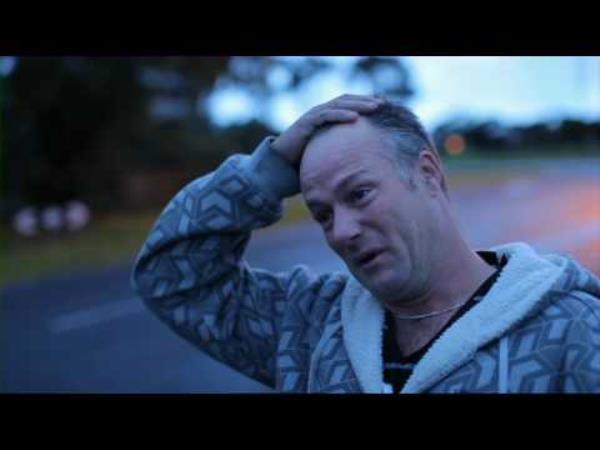By NOEL MURPHY
GIANT billboards advertising sex are allowed to distract drivers but not roadside memorials to crash victims, according to Bannockburn road safety advocate Norm Robinson.
The former face of a TAC road safety campaign yesterday lashed out at VicRoads plans to tighten the law regarding roadside memorials, saying they were the best advertising possible to encourage safer driving.
Mr Robinson said the TAC campaign that featured him at son Luke’s roadside memorial on Anakie Rd was its most successful ever.
“It’s equivalent to ripping up my son’s grave,” he told the Independent.
“If they’re not effective why were they main feature of most successful TAC campaign? People see them and they remind them of the potential dangers on the road.
“I don’t what the real issue is. You can put up 40-foot billboard saying ‘sex’ or nasal therapy and they’re okay.
“You can put up a massive billboard with boobs on it – they’re okay to take drivers attention off the road to look but you can’t to draw attention to the impact of bad driving.”
VicRoads wants to restrict roadside memorial sizes to no more than 60cm by 40cm wide, keep them away from homes, stop them using photos and to ban memorials from guideposts, light poles, barriers, road signs, roundabouts, traffic islands and freeway reservations.
The roads authority also wants memorial owners/families to bear any costs related to traffic management or mediation where disputes arise. Crosses would have to be timber, white or neutral in colour, while offensive symbols, weapons, beer cans, alcohol and other objects that might offend would be banned.
Mr Robinson said roadside memorials were unpopular with authorities for highlighting shortcomings in their road safety efforts.
Authorities were “more interested in protecting their jobs than coming up with better safety systems”, he said.
“They should look at more than pulling down someone’s memorial. If they did what they’re supposed to do so, monitored the roads, we’d have fewer memorials.”
A VicRoads survey has found that 63 per cent of people supported roadside memorials and 61 per cent believed they encouraged safer driving . Fifty-four per cent found the memorials distracting while driving.









